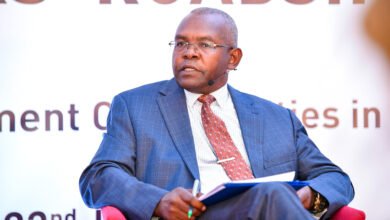
The Central Bank of Kenya (CBK) raised the benchmark lending to 7.5 percent for the first time since July 2015.
The Monetary Policy Committee (MPC) in a meeting Monday, cited the elevated risks to inflation outlook due to increased global prices.
CBK first set the lending rate at 7 percent in April 2022 a month after the coronavirus pandemic hit Kenya’s shores.
It marks the first rate hike since July of 2015, to anchor inflation expectations amid strong price pressures due to an increase in commodity prices exacerbated by the conflict in Ukraine.
This is good news for Kenyans because usually, an increase in the benchmark often means banks will pay more interest on deposits.
Whether directly or indirectly, the number of borrowing costs for consumers goes up. This slows demand for goods and taps the brakes on inflation.
The annual inflation rate in Kenya accelerated to a seven-month high of 6.47 percent in April from 5.56 percent in March, reflecting higher prices of basic food and fuels, but still within the bank’s 2.5 percent to 7.5 percent target band.
According to MPC, the global economic outlook has become more uncertain, reflecting the impact of the ongoing Russia-Ukraine conflict, uncertainty about the required policy responses in the advanced economies, effects of COVID-19 containment measures in China, and persistent supply chain disruptions.
The pace of global economic growth has decelerated mainly reflecting the slowdown in the U.S. and China. Global inflationary pressures remain elevated reflecting the impact of the sharp increase in prices of commodities particularly fuel, fertiliser, edible oils, and wheat.
Financial market volatility has also increased significantly amid the recent adjustments in monetary policy in advanced economies.
CBK’s foreign exchange reserves, which currently stand at Ksh.954.3 billion (4.86 months of import cover), continue to provide adequate cover and a buffer against any short-term shocks in the foreign exchange market.
Kenyan economy rebounded strongly in 2021 following the easing of COVID-19 restrictions, with real Gross Domestic Product (GDP) growing by 7.5 percent from a contraction of 0.3 percent in 2020.
CBK said it expects the economy to remain resilient in 2022, with continued strong performance of the services and manufacturing sectors despite the downside risks to global growth.





